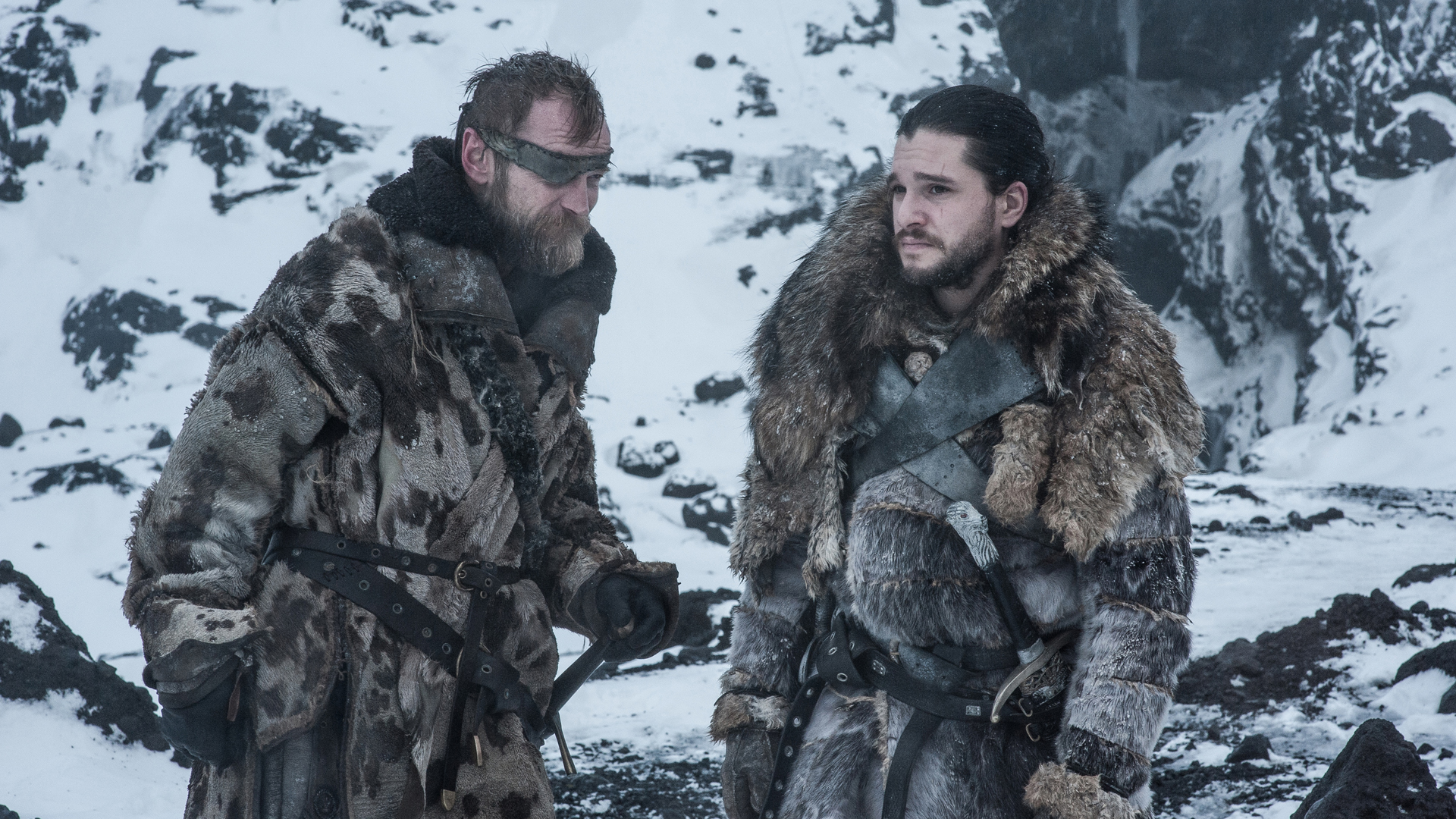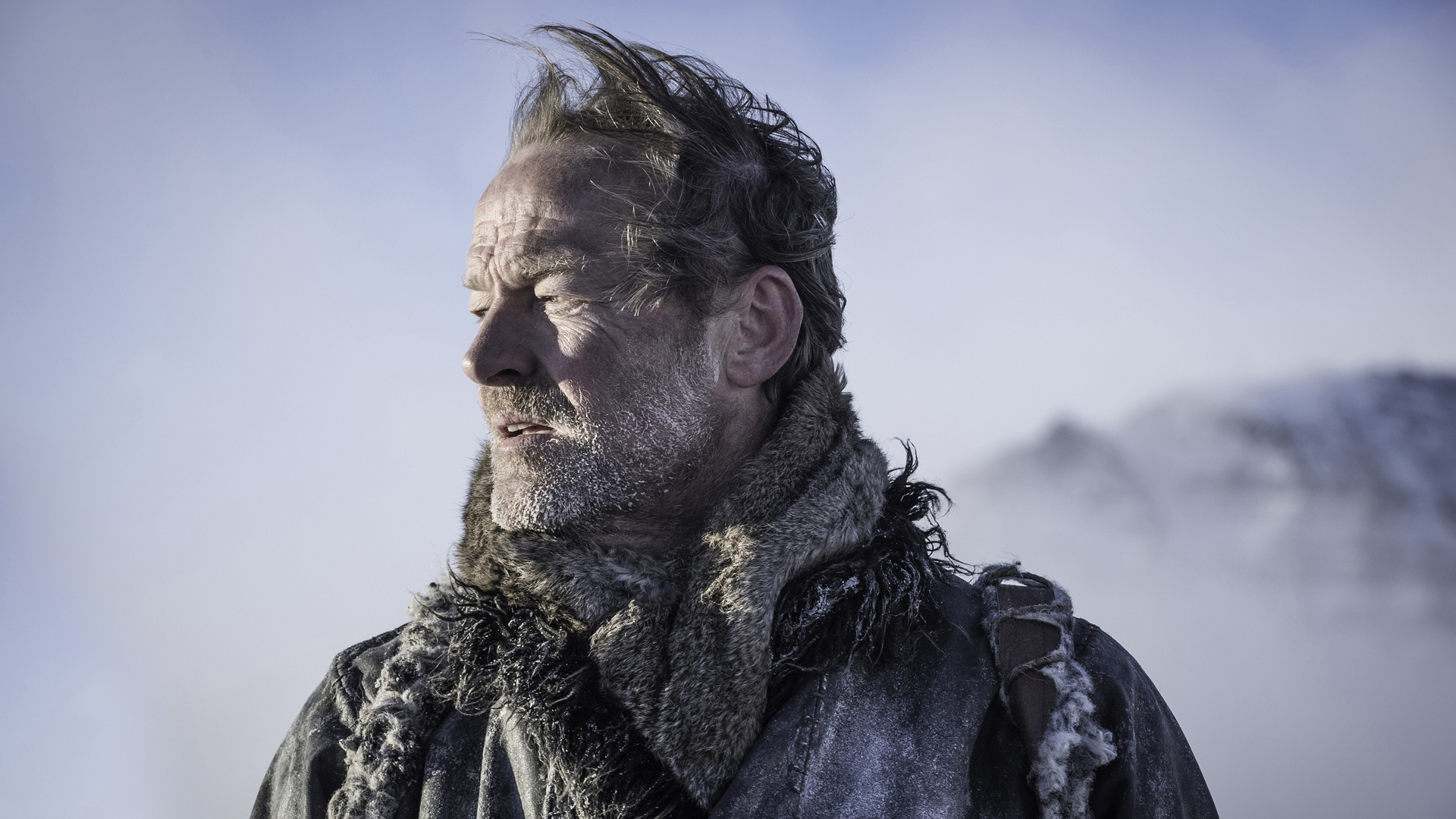GamesRadar+ Verdict
More plotholes than any other episode in season 7, but a cracking spectacle nonetheless.
Why you can trust GamesRadar+
Fire and ice. It’s what we were promised for Game of Thrones season 7, and the penultimate episode - Beyond the Wall - delivers it. And oh my, how it delivers it. While the savage encounter between Jon’s magnificent seven and the relentless army of the undead doesn’t quite top the Battle of the Goldroad in terms of spectacle, the implications for its outcome will echo throughout the final season of this show.
In all, Beyond the Wall is a relatively simple episode, and outside the freezing fight with the Night King, many of the other plotlines are relatively weak. More on that later… because there’s an undead dragon to be discussed. Viserion, to be precise. The loss of Daenerys’ smallest dragon is the final move needed to set up a grand showdown in season 8, and the way it happens is narratively shaky, as if the showrunners knew what they wanted, but didn’t quite have a good enough excuse to make it happen. However, as a slice of TV viewing, it’s huge and massively entertaining.
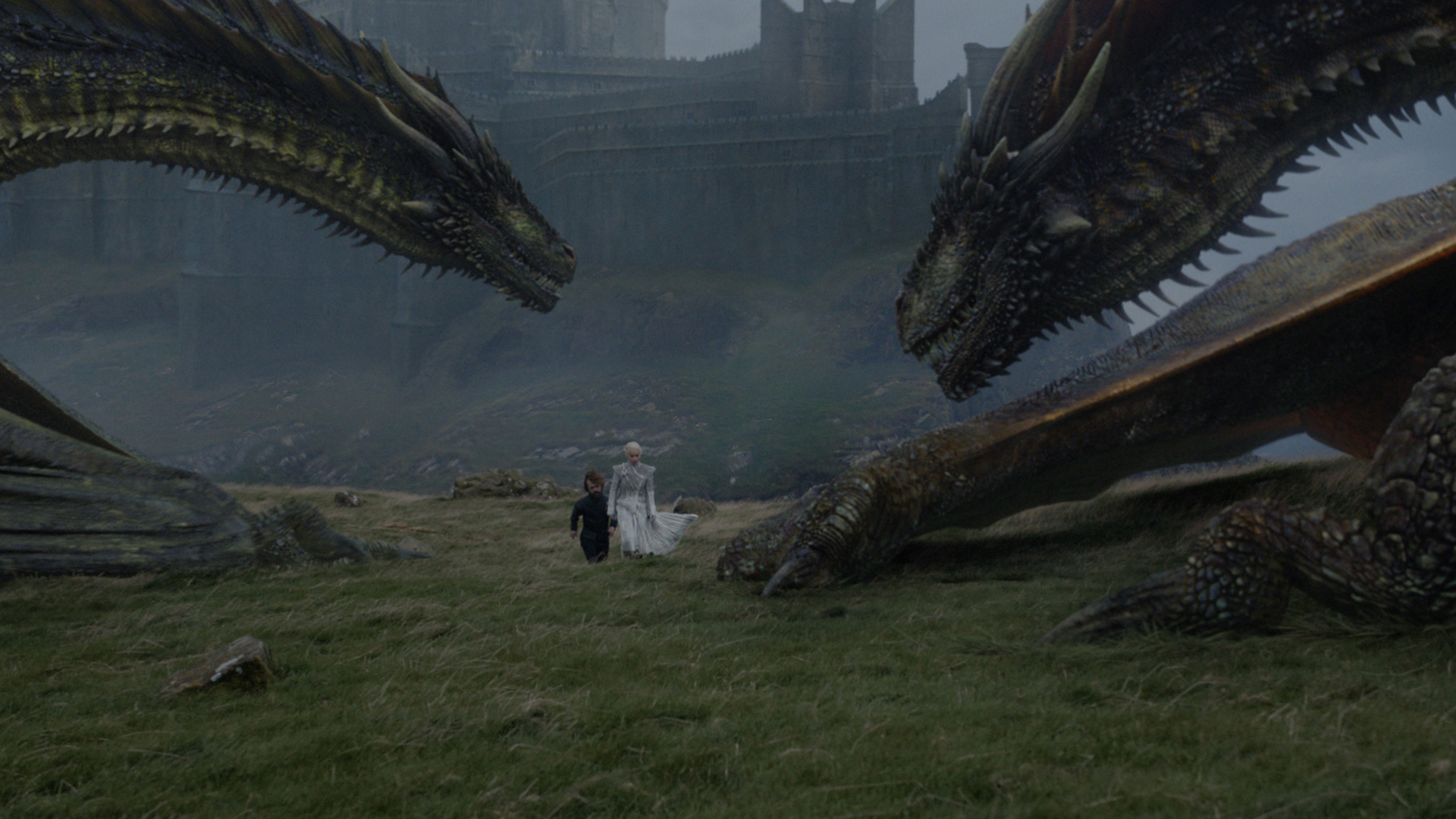
Let’s examine the set-up for Viserion’s death. Jon’s crew happen to chance upon a small group of wights with a single White Walker. They easily overpower the group, and just so happen to leave a single zombie alive when they cut down the Walker controlling the others. What? Did that one zombie get a bit drunk last night and follow the wrong Walker? Is he filling in for his mate, Bob the Zombie, who didn’t want to do scouting duty that morning? It’s a terrible piece of narrative consistency, but what the hell, it shows us that all the wights die when the Walker who turned them is executed, which is worth noting because once the Night King falls, the rest will follow. With wight in sack, the group seem shocked when the remainder of the Army of the Dead descends on them in seconds and traps them in the middle of a frozen lake.
Somehow Gendry manages to run back to Eastwatch (perhaps he’s a sprinter, not a rower, after all), Davos sends a raven to Daenerys, and she flies up to Eastwatch in a single night. Meanwhile Thoros, who likely died to add a little more tension to the fight (there’s no-one left to bring back anyone who dies, so you’re all on your last life - as The Hound points out), freezes overnight and gets burned by Beric’s magic sword. He deserved a better death, especially as Beyond the Wall seems to hand out its significant moments based on spectacle rather than reason. Daenerys shows up and roasts all the Wights in the nick of time. And all they then have to do is leave.
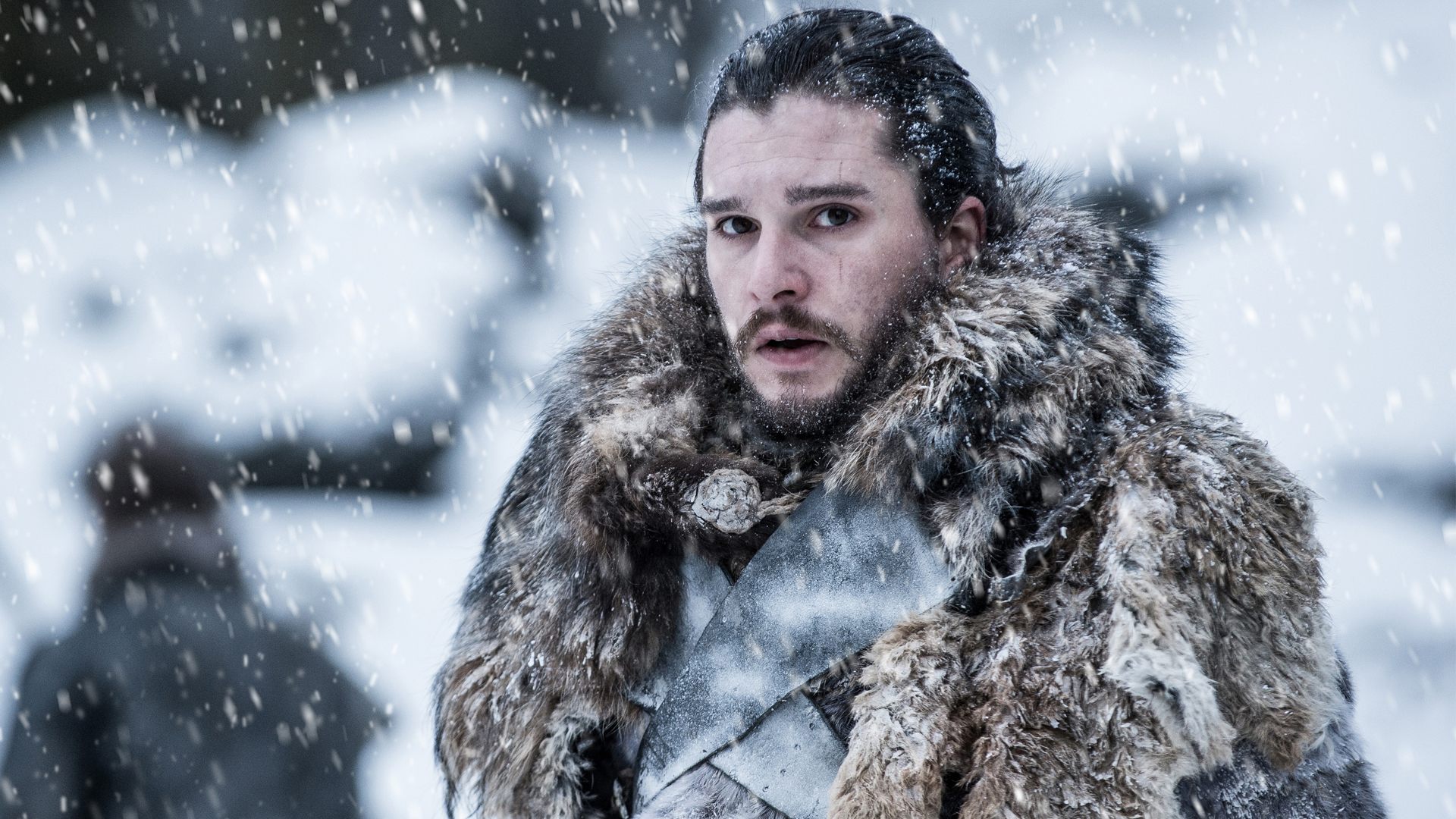
Why, then, does Jon start cutting down wights and making a beeline for the Night King, when he specifically chose not to earlier in the fight? His brain-freeze is directly responsible for the loss of Viserion, and by rights Dany should be absolutely livid. Yet when Jon hauls himself out of the lake, and plot device #2, Benjen Stark, shows up to gift him a horse, Daenerys welcomes him back with open arms and a cheeky squeeze of the hand. The romance between the pair is touching and warm in a show filled with cold moments and death, but it can’t distract from the fact there are plotholes in this episode larger than the gaps in the frozen lake that whole swathes of wights fell through.
Yet still, when Viserion plummets from the air after the Night King’s spear perforates his armour, it’s a moment that will have rendered every viewer absolutely silent with awe. In many ways, the show has been building towards the death of a dragon since Dany hatched them at the end of season 1, and while narratively dubious, there’s no doubting the power of the scene itself. Much like Thoros, however, Viserion probably deserved a better death too. Benjen Stark, though? Nah, we never really knew him anyway.
For me, the actual highlight of Beyond the Wall came right at the start, when the seven main characters made like the Fellowship of the Ring, travelling over epic scenery discussing their past rivalries and philosophies. Tormund’s speech to Jon about the fate of Mance Rayder is perfectly pitched, and his conversation about Brienne of Tarth with the Hound is both wonderfully touching and gently humorous. He’s fast becoming one of the most likeable, most human characters in the whole show, and his near death in the final battle with the wights is a genuine tease that plucks at the viewers’ nerves perfectly. Jon’s attempt to return Longclaw to Jorah, as his family sword, is a little less subtle - it’s clearly a foreshadowing of the final scene where Daenerys and Jon admit their feelings for each other, dressed up as something more noble, and again it makes little sense in the overall scheme of things. If you’ve resisted tradition over common sense and survival for so long, why would you give your White Walker-killing Valyrian steel sword to someone you just met in the name of ‘family tradition’? Come on, Jon.
Weekly digests, tales from the communities you love, and more
The attack of the zombie bear is equally puzzling, and feels like Game of Thrones introducing a concept either because it can, or to remove any doubt that (nudge nudge, wink wink) creatures can be turned by White Walkers too. Again, despite making little sense, it’s a delightfully tense battle to vary the pace of the episode and keep things ticking along.
In all, though, Beyond the Wall feels like a hugely clumsy penultimate episode because the show isn’t really sure what the hell to do with the Army of the Dead. Obviously it’s not as simple as the memes suggest, but they’ve made relatively pathetic progress south in seven seasons, while some characters have merrily travelled the entirety of Westeros (and back). It’s almost as if they’re more effective as a looming threat than an actual faction and plotline that needs to be resolved.
Outside of the main scrap north of the wall… things don’t make much more sense. In Dragonstone, Tyrion continues to make the wrong calls, through no real fault of his own. His conversation with Daenerys about heroes and legacy is one of the most important questions remaining in Game of Thrones, yet she swats it away like a petulant child who just wants to play with her deadly toys. Daenerys continually insists that Tyrion is her most trusted advisor, yet she has started to ignore his advice and shows signs of deep mistrust. It’s an interesting dynamic, but one that is undermining the credibility and potency of one of the show’s best characters. His intentions are clear - he’s trying to heed Varys’ advice and help her make decisions - but he seems to be misjudging Daenerys wildly.
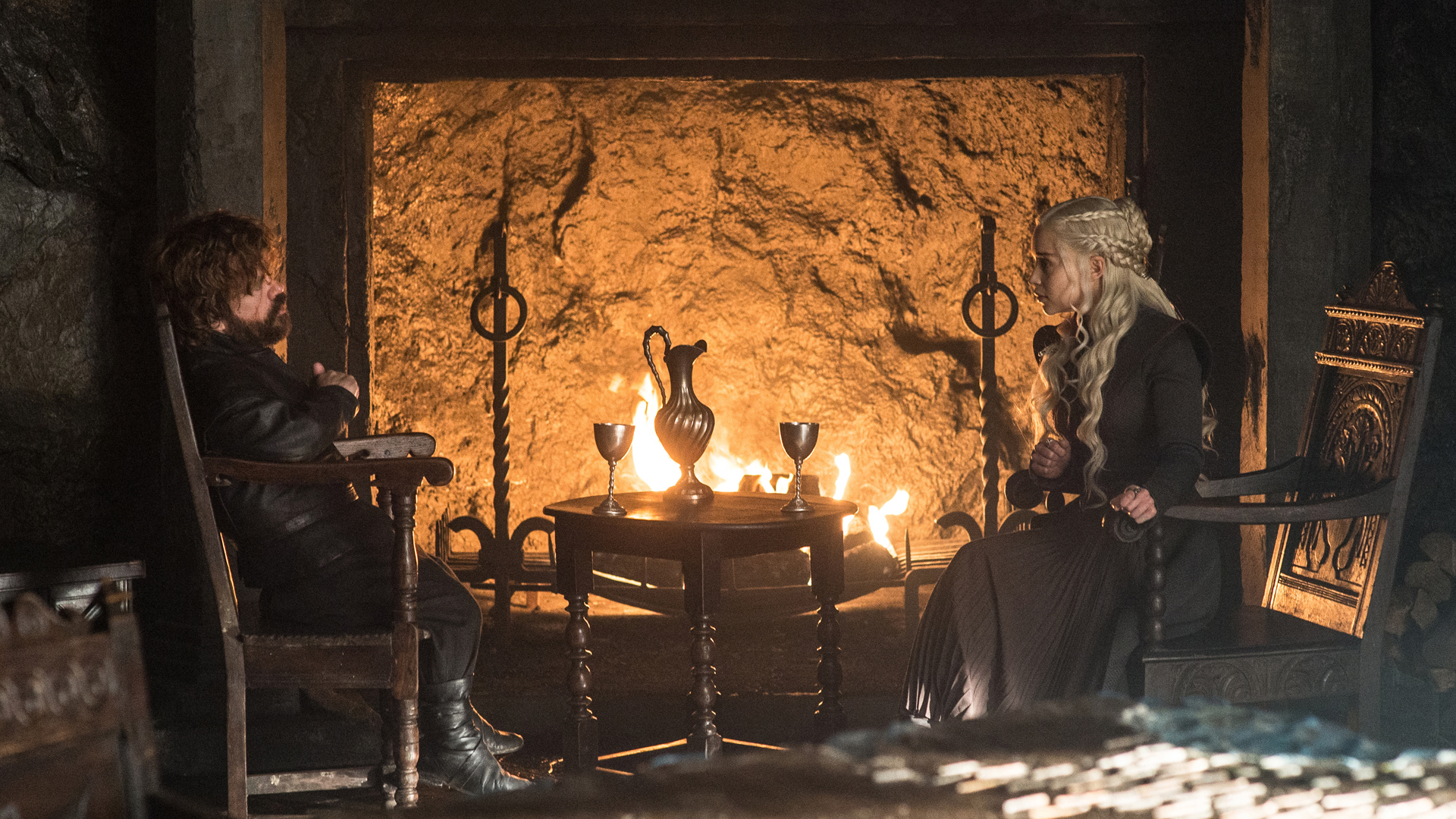
Finally, in Winterfell, things are falling apart too. Littlefinger’s rather obvious ploy of driving a wedge between the Stark sisters appears to be working wonders, as Arya confronts Sansa about her allegiances during the death of her father and brother Robb. Abandoning reason in favour of pure, brattish petulance, Arya questions the loyalty of her blood relative, even going as far as suggesting she’d rather be married to psychopath Joffrey or psychotic rapist Ramsey instead of staying true to her own house. The final scene between the pair is an overt threat, as Arya effectively suggests she could rule Winterfell ‘as Sansa’ by peeling offer her face.
The phrase ‘well that escalated quickly’ springs to mind. It makes the early season bickering between Jon and Sansa seem utterly fair and reasonable by comparison. The only hope of this bizarre turn of events is that the pair are somehow putting on a show for Littlefinger, who they expect to be watching from the shadows, but given the deeply clumsy storytelling in this episode, it seems highly unlikely. And where the hell is Bran in all this? Being moody by a tree? He knows everything, so why isn’t he putting an end to Littlefinger’s scheming with a few carefully chosen, yet sullenly delivered, words to his sisters? Much like the White Walkers, Bran functions best when he’s enabling other parts of the plot instead of leading it himself, so he seems to have been conveniently forgotten for now.
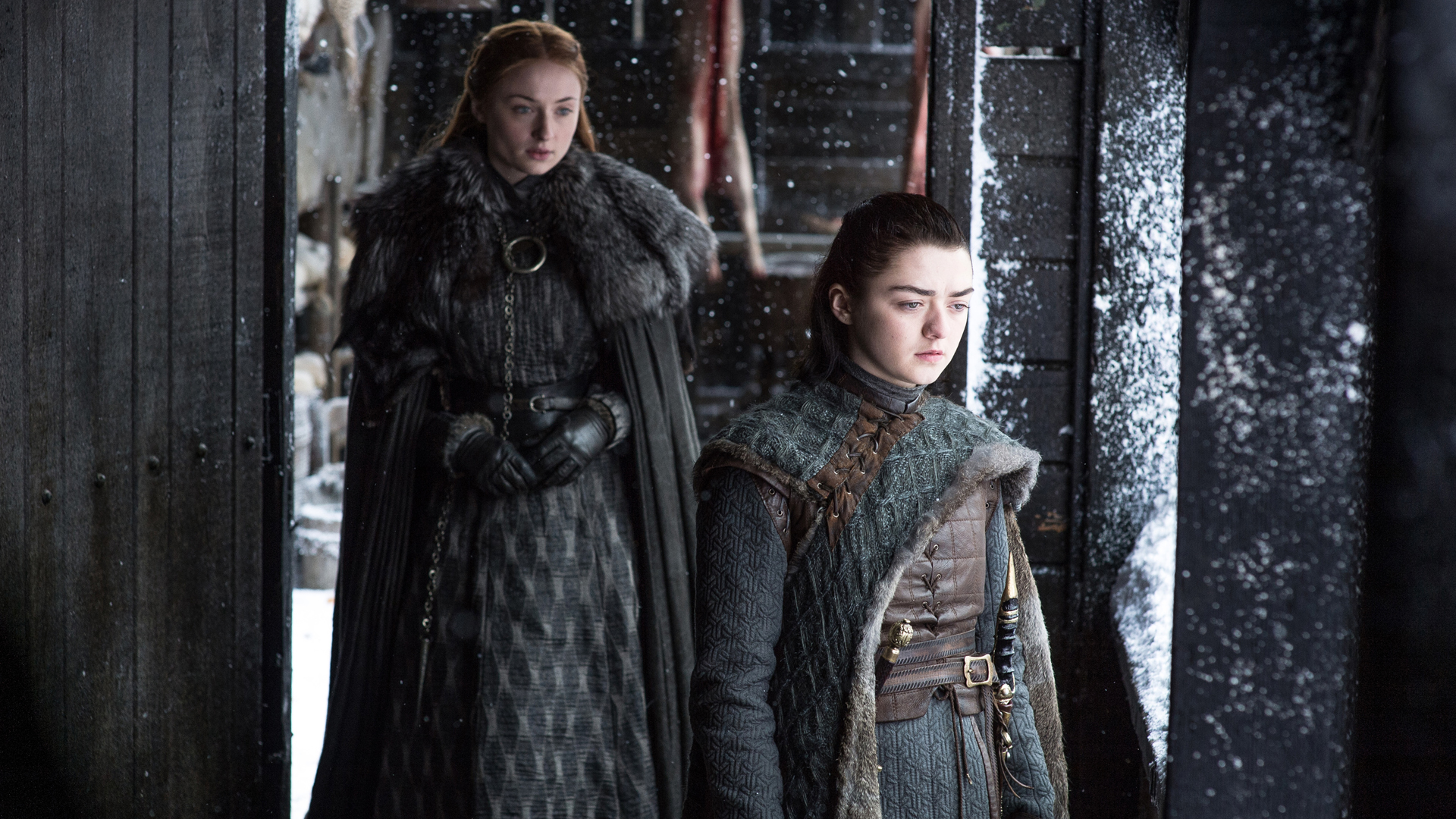
In all, Beyond the Wall is a poor episode from a narrative perspective. It plays fast and loose with the show’s trademark plotting and careful build up in favour of pure spectacle, and a desire to shock and please the viewer. As such, it feels dissatisfying despite all the carefully choreographed violence and magnificent CG. Game of Thrones’ first dragon casualty is shocking, yet utterly unnecessary, which takes the edge off some of the entertainment. As such, the extent to which you enjoy Beyond the Wall really depends on how hard (or not) you’re going to scrutinise what you actually see, and whether you’re just willing to get swept up in the story as it rushes - out of control - to the season’s climax. Great TV, then, but unusually for Game of Thrones, not the smartest.
More info
| Studio | HBO |
| Air date | 19 July, 2017 |

